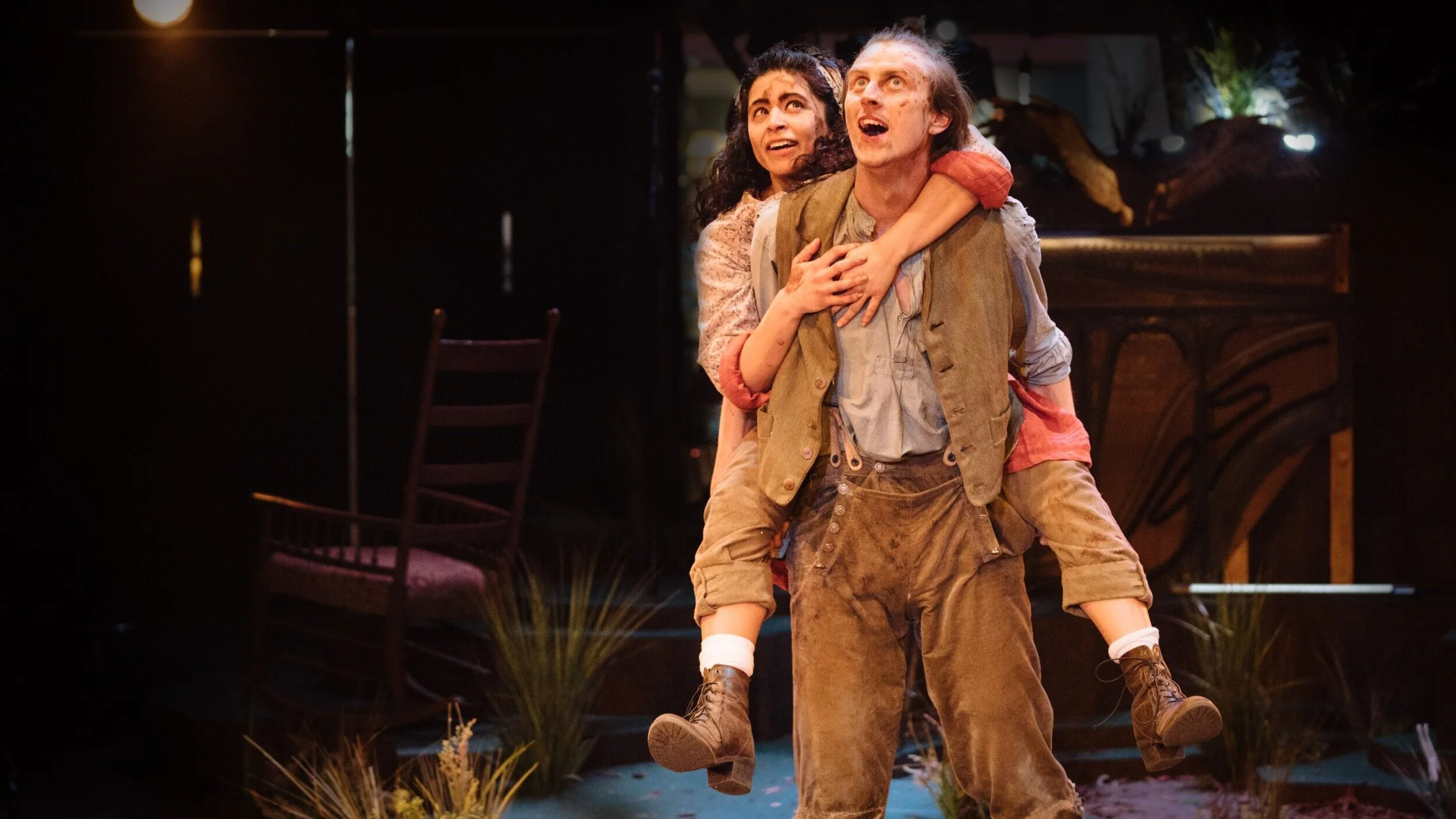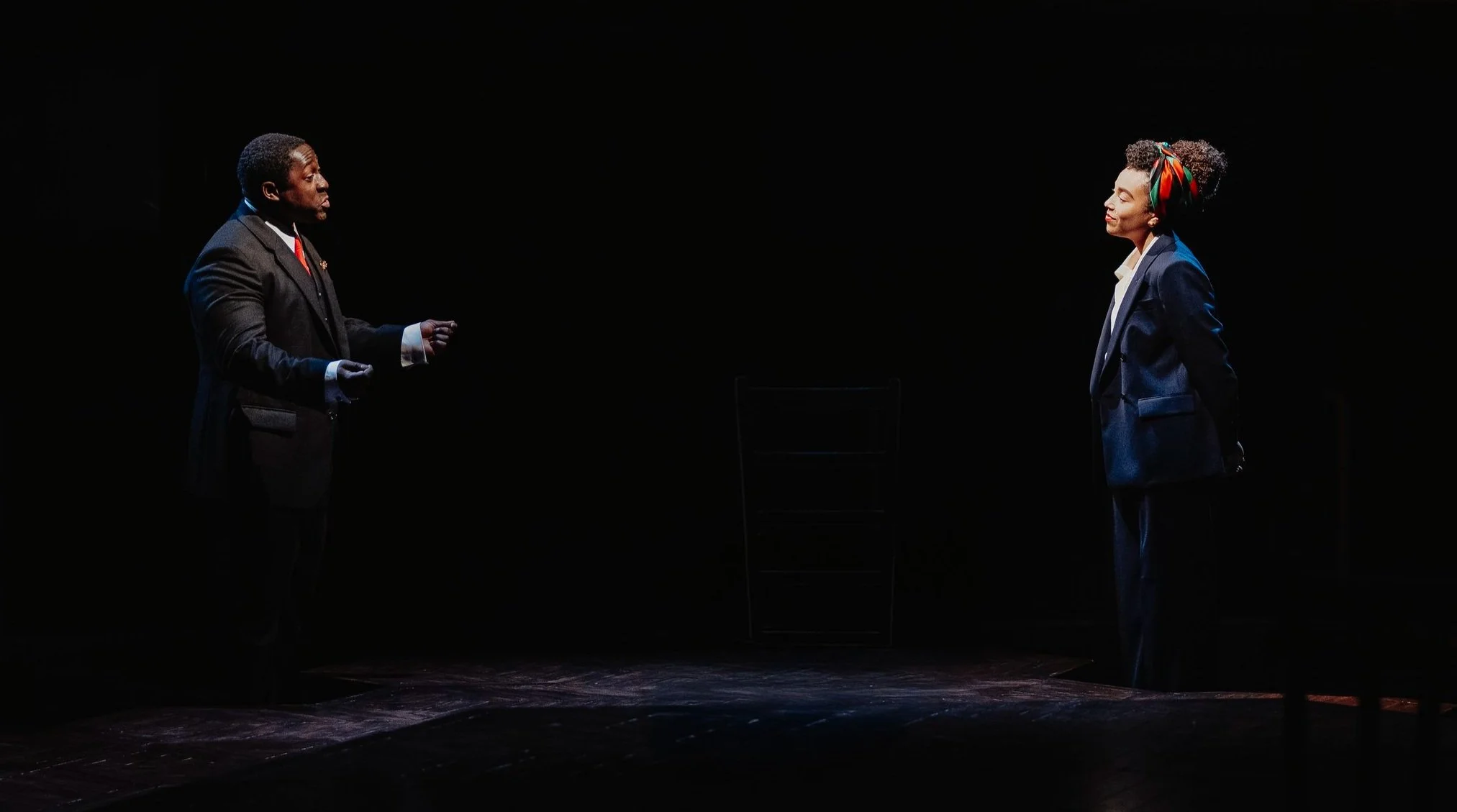Frankenstein @ Royal Exchange: an innovative tribute to a literary great
Plunged into darkness, with a crash and a flash, we are on Captain Walton’s ship, trapped amidst the ice. 200 years after Mary Shelley’s iconic novel was published, April de Angelis and the Royal Exchange Theatre reignite life into the pages of Frankenstein.
Staying very true to the novel’s frame narrative, this production enlivens the words from the page (whilst avoiding the reliance on lengthy quotations, that I've seen in some tiresome productions before). The adapted script combines original quotes with modernised, playful additions, whilst stylistically enacting the minutiae of what it narrates. The first act plays like a montage, with some scenes lasting mere seconds. For some, this approach may have restricted their full immersion in the story; yet I enjoyed the dramatic range on show. This comes in contrasting forms: robotic dumbshow defines the peasants whom the creature struggles to understand, as opposed to pantomimic caricatures, who clarify plot points, enable the fast-pace of overlapping scenes and bring some unexpected light relief. A constant soundtrack seamlessly connects these scenes, dictating noticeable shifts in mood and helping to guide us through the break-neck speed of the storyline. The cast manage epistolary passages gracefully, delivering characterised emotion, whilst also remaining ethereally distant.
As a physical reminder of the novel’s shape, Walton (played by Ryan Gage) is omnipresent; he watches and verbalises what we’re all thinking. His satirical pomposity brings a sense of humour and humanity to the monstrous, dramatic atmosphere. Moreover, he stands as a remedy to Frankenstein’s desperate nature. Unfortunately, telling the story from a single future perspective, the role of Victor is somewhat limited in scope. Shane Zaza gives an appropriately frail, war-torn and jittery performance, but, exhaustingly, he remains this way throughout. Having said that, an emphatic scene where Victor literally washes blood from his hands in the pouring rain, marks a striking emotional moment; very Lady Macbeth!
Harry Attwell gives an intense, evolving performance as the Creature. Every aspect of his movement is carefully considered, resulting in the presentation of one who is just off-centre from natural or human. The Creature has his biggest scenes at the close of each act: the end of the first half slows the pace considerably, as the story demands a retelling of what has come before. Contrastingly, the end of the second act builds to a moving crescendo; we finally see the creature in all his artistic deformity, stripped of his ominous cloak, moaning and repenting. Walton is noticeably moved and, as such, so are the audience.
Excellent performances also surround the character of young William, who is powerfully presented as a puppet. This marries an eye-catching technique with a telling comment on the human obsession with creating life, or playing God.
Shanaya Rafaat, as Elizabeth (and, poetically, doubling as each respective love interest) gives an eloquent, measured performance, fitting for a period drama. Quite differently, Clerval is played by Colin Ryan with charming playfulness. These two actors, who frame the role of Victor, offer contrasting performance styles, personifying the variation of the production.
At once a tribute to a historical masterpiece and a revealing comment on the pervasive relevance of themes, Matthew Xia’s direction combines a host of diverse techniques, paces and styles. Comedy meets horror, period drama meets relevant humour, and multiple time frames overlap. Presented in the round, with ghostly characters entering from all sides, the play is chillingly designed as if to enter the inside of Victor Frankenstein’s fraught mind.
Relatively basic set design is decorated by Shelley’s and Angelis’s words. Yet, exquisitely designed items distinguish key scenes amidst the fast-moving plot. Victor’s laboratory is adorned in great detail, as is Elizabeth’s bedroom, and the courtroom in which Justine is condemned marks how the entrance of furniture enhances these emotionally wrought, gasp-worthy highlights. Beyond that, this production plays cleverly with light and darkness throughout. Where atmospheric dimness is repeatedly illuminated with fire, the scene of creation introduces the invasion of modernity; there is a shock of fluorescent strip lighting and an excellently dramatic moment of revelation that grows out of the darkness.
Unfortunately, some inexplicable tittering from the audience undermines some of the more gripping moments, perhaps suggesting that the early performances haven’t yet grasped their full potential. However, I was enthralled by the play, admiring the distinctly literary style and, despite knowing the story well, I found myself excitedly uncertain of what was coming next.
Frankenstein plays at Royal Exchange Theatre, Manchester until April 14th.
Title image sourced via Royal Exchange Theatre





